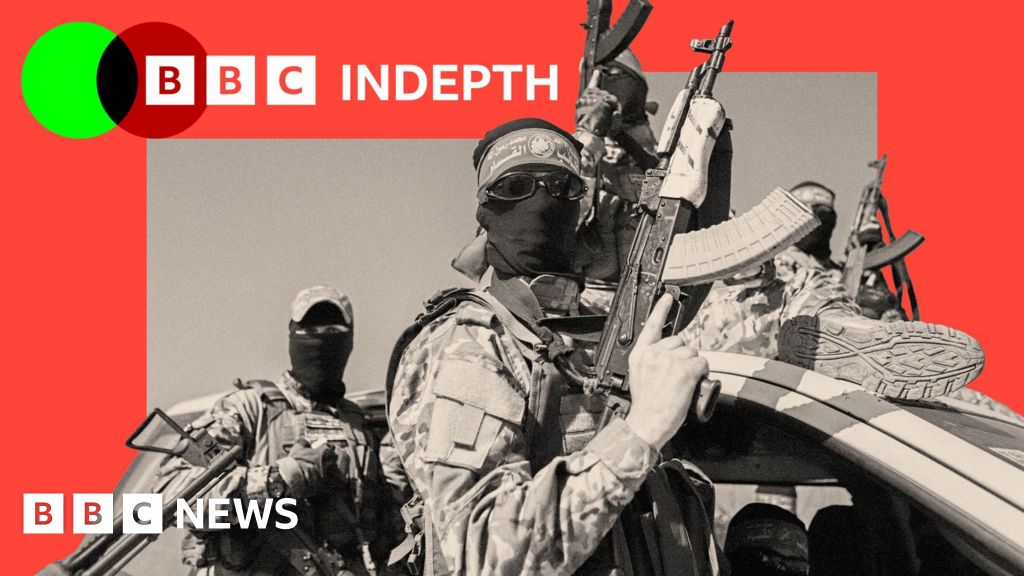Hamas is a pale shadow of what it was - but it could yet reinvent itself
33 minutes ago Share Save Paul Adams Diplomatic correspondent, Jerusalem and Rushdi Abualouf Gaza correspondent Share Save
BBC
How does a group that has governed the Gaza Strip for almost 20 years, ruling two million Palestinians with an iron rod and fighting Israel in repeated wars, suddenly lay down its arms and relinquish control? Judging by a steady stream of gruesome images emerging from Gaza since the ceasefire came into effect on 10 October, Hamas seems intent on reasserting its authority. Its masked men, back on the streets, have been seen beating and executing opponents. Impromptu firing squads have dispatched kneeling men they say are members of rival groups, including some of Gaza's powerful clans. Other victims, cowering in terror, are shot in the legs or beaten with heavy clubs. Some of those now being attacked by Hamas had been part of groups involved in looting and diverting aid, according to one aid worker I spoke to, exacerbating the humanitarian crisis. The UN has also accused criminal gangs of stealing aid. This is not yet a world in which, as US President Donald Trump's 20-point Gaza peace plan envisages, Hamas fighters turn over their weapons, submit to an amnesty, leave Gaza and hand over to an international stabilisation force.
AFP via Getty Images The ceasefire came into effect on Friday 10 October - Hamas and Israel have both blamed each other for blatant violations of it
For his part, President Trump initially seemed ambivalent about the brutality. On his way to Israel on 13 October, he signalled the US had given Hamas - designated a terrorist group by the US, UK, Israel and others - a green light to restore order. "We have given them approval for a period of time," he told reporters aboard Air Force One. Three days later, he hardened his tone. "If Hamas continues to kill people in Gaza, which was not the Deal," he wrote on Truth Social, "we will have no choice but to go in and kill them." So, where does this situation on the ground in Gaza today leave Hamas? And ultimately, after two years of war that has resulted in unparalleled suffering for its own people and the violent death of most of its key figures, what, if anything, does the future really hold for the group?
'A complete loss of law and order'
For many Gazans, traumatised and exhausted by two years of perpetual suffering - and a war that has killed 68,000 people in Gaza according to the Hamas-run Health Ministry - this ugly endgame is nerve-wracking, but doesn't come as a surprise. Of the Gazans I spoke to - among them, aid workers, lawyers, as well as a former adviser to a Hamas leader - each has a different take on the likelihood of Hamas laying down its arms and relinquishing control.
Continue Reading on BBC News
This preview shows approximately 15% of the article. Read the full story on the publisher's website to support quality journalism.
